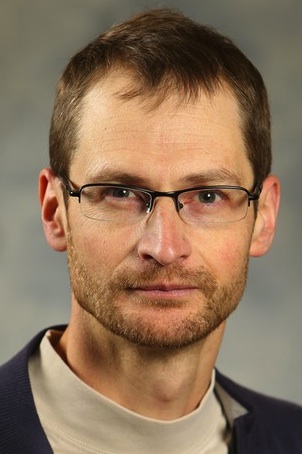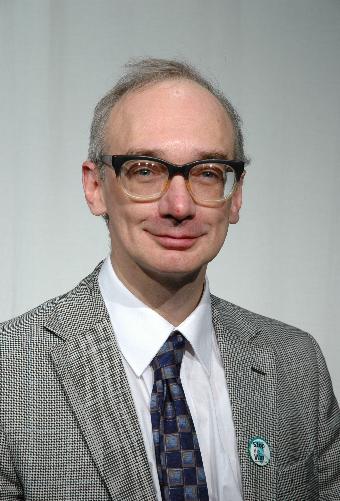doi:10.1145/2598394.2598397
GECCO 2014 Genetic Programming Track
Description:
In genetic programming, evolutionary computation is to search for an algorithm or executable structure that solves a given problem. Various representations have been used in GP, such as tree-structures, linear sequences of code, graphs and grammars. Provided that a suitable fitness function is devised, computer programs solving the given problem emerge, without the need for the human to explicitly program the computer. The genetic programming (GP) track invites original submissions on all aspects of the evolutionary generation of computer programs or other variable sized structures for specified tasks. Advances in genetic programming include but are not limited to:- Analysis: Information theory, Complexity, Run-time, Visualization
- Applications: Classification, Control, Data mining, Regression, Semi-supervised, Policy search, Prediction, Streaming data
- Environments: Dynamic, Interactive, Uncertain
- Operators: Replacement, Selection, Variation
- Performance: Surrogate functions, Multi-objective, Coevolutionary
- Populations: Demes, Diversity, Niches
- Programs: Decomposition, Modularity, Semantics, Simplification
- Representations: Cartesian, Grammatical, Graphs, Linear, Rules, Trees
- Systems: Autonomous, Complex, Developmental, Gene regulation, Parallel, Self-organizing, Software
Keywords:
Genetic programming (GP), data mining, learning, complex systems, performance evaluation, control, grammatical evolution (GE), fitness, training set, test suite, selection operators, theoretical analysis, fitness landscapes, visualisation, regression, graphs, rules, software improvement, representation, information theory, tree GP, complex, optimisation, evolvability, machine learning, feature construction and selection, applications, variation operators (crossover, mutation, etc.), hyperheuristics and automatic algorithm creation, parameter tuning, prediction, applications, symbolic expression, linear GP, knowledge engineering, environment, decision making, uncertain environments, nonlinear models, unique applications, streaming data, human competitive, dynamic environments, parallel implementations, Cartesian genetic programming (CGP), GP in high performance computing (parallel, cloud, grid, cluster, GPU).Biosketches:
Malcolm Heywood

I have had the opportunity to conduct research on biologically motivated frameworks for machine learning since 1993, with a focus on evolutionary methods since 2000. Particularly entertaining projects in the past have included evolving routing algorithms under local information (2002, 2006), evolving buffer overflow attacks (2005-2011) and developmental GP (2006, 2007). Other things that occupy my (research) time include schemes for decoupling genetic programming from task cardinality (2003 onwards), coevolutionary frameworks for discovering modularity (2005 onwards) and schemes for evolving programs hierarchically (2005 onwards). Current application domains of interest include financial trading and soccer playing agents. He is a member of the editorial board for Genetic Programming and Evolvable Machines (Springer).
W. B. Langdon

Bill has been working on GP since 1993. His PhD was the first book to be published in John Koza and Dave Goldberg's book series. He has previously run the GECCO GP track and was programme chair for GECCO 2002 having previously chaired EuroGP for 3 years. More recently he has edited SIGEVO's FOGA and run the computational intelligence on GPUs (CIGPU) and EvoPAR workshops. His books include A Field Guide to Genetic Programming, Foundations of Genetic Programming and Advances in Genetic Programming 3. Bill also maintains the genetic programming bibliography. His current research uses GP to genetically improve existing software, CUDA, search based software engineering and Bioinformatics.
W.B.Langdon 15 August 2013 (last update 17 August 2014) Bio:
Sumit Gulwani is a principal researcher in the
RiSE
group at
Microsoft Research, Redmond, USA. He has expertise in formal methods
and automated program analysis and synthesis techniques. As part of
his vision to empower masses, he has recently focused on
cross-disciplinary areas of automating end-user programming (for
various systems like spreadsheets, smartphones, and robots), and
building intelligent tutoring systems (for various subject domains
including programming, logic, and math). Sumit's
programming-by-example work led to the famous
Flash Fill feature of
Microsoft Excel 2013 that is used by hundreds of millions of people.
Sumit is a recipient of the
ACM Robin Milner Award.
He obtained his PhD in Computer Science from UC-Berkeley in 2005,
and was awarded the ACM SIGPLAN Outstanding Doctoral Dissertation
Award. He obtained his BTech in Computer Science and Engineering from
IIT Kanpur in 2000, and was awarded the President's Gold Medal.
Bio:
Sumit Gulwani is a principal researcher in the
RiSE
group at
Microsoft Research, Redmond, USA. He has expertise in formal methods
and automated program analysis and synthesis techniques. As part of
his vision to empower masses, he has recently focused on
cross-disciplinary areas of automating end-user programming (for
various systems like spreadsheets, smartphones, and robots), and
building intelligent tutoring systems (for various subject domains
including programming, logic, and math). Sumit's
programming-by-example work led to the famous
Flash Fill feature of
Microsoft Excel 2013 that is used by hundreds of millions of people.
Sumit is a recipient of the
ACM Robin Milner Award.
He obtained his PhD in Computer Science from UC-Berkeley in 2005,
and was awarded the ACM SIGPLAN Outstanding Doctoral Dissertation
Award. He obtained his BTech in Computer Science and Engineering from
IIT Kanpur in 2000, and was awarded the President's Gold Medal.